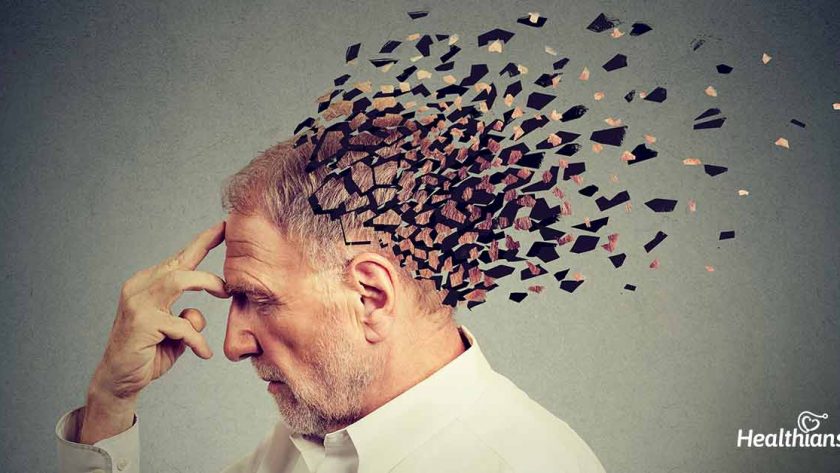[ad_1]
Contributed by: Priyaish Srivastava
Understanding Alzheimer’s
Alzheimer’s disease is the most common and progressive type of dementia. Dementia is a condition that negatively affects memory, thinking capacity, and the ability to communicate effectively. People suffering from Alzheimer’s may also experience language problems and impulsive or unpredictable behavior.
According to a study conducted by the Alzheimer’s & Related Disorders Society of India (ARDSI), India had around 3.7 million cases of Alzheimer’s disease in 2010 and the number is expected to rise to 7.6 million by 2030. At present, approximately 5.3 million Indians live with dementia, and the most common cause is Alzheimer’s disease.
The condition usually affects people aged 65 years or above, but it can also impact the brain health of people in their 30’s or 40’s. When any person below the age of 65 years is affected by Alzheimer’s, the condition is termed early-onset (or younger-onset) Alzheimer’s disease.
The disease got its name from Dr. Alios Alzheimer who identified this condition in 1906. World Alzheimer’s Day is observed on 21st September every year, and the theme for 2021 is ‘Know Dementia, Know Alzheimer’s’.
In this article, you will reflect on the causes and symptoms of Alzheimer’s disease and the measures you can take to manage the condition, once diagnosed.
Causes and risk factors of Alzheimer’s disease
Although the exact cause of Alzheimer’s disease is still unknown, yet experts have identified several risk factors which include:
People aged 65 years or above are more prone to get affected by Alzheimer’s disease.
There is a slightly higher risk of getting affected by Alzheimer’s disease if your parents or siblings are suffering from this condition.
Having one or both of these risk factors does not necessitate that you can get affected by the disease, but it increases the risk levels of being afflicted by Alzheimer’s
Symptoms of Alzheimer’s
Being a progressive condition, Alzheimer’s symptoms worsen over time. The symptoms do not occur at once and appear gradually over months or years. If the symptoms develop in hours or days, immediate medical attention is required as it can be a sign of stroke. These symptoms include:
-
- Repeating questions or conversations
- Losing track of everyday objects
- Inability to remember appointments or events
- Wandering or getting lost
- Lessened understanding of safety and risks
- Difficulty in making decisions
- Difficulty in completing stage-based tasks, such as getting dressed
- Problem with recognition
- Problem with speaking, reading, or writing
- Personality and behavioral, such as being compulsive, angry, upset, or loss of interest in activities
Stages of Alzheimer’s disease
Alzheimer’s disease is a progressive condition that includes three stages:
In this stage, Alzheimer affected people develop memory problems and cognitive difficulties.
In this stage, the part of the brain responsible for language, senses, reasoning, and consciousness is damaged in affected people.
This last stage of Alzheimer’s is a condition in which plaques and tangles are present in the brain of affected people, causing the brain tissue to deteriorate. Plaques are clumps of a protein (beta-amyloid) found in the brain which disrupts the communication between nerve cells. Tangles are abnormal accumulations of a protein (tau) inside the neurons.
How best to manage Alzheimer’s
Alzheimer’s disease is a progressive ailment and unfortunately, it does not have any cure so far. Though, there are medicines available that can help delay the aggravation of dementia symptoms and manage behavioral issues. However, certain management techniques can also be practiced to help manage the impact of Alzheimer’s
Here are some tips for caregivers/relatives of Alzheimer’s patients:
-
- Keep things simple and ask or say one thing at a time
- Maintain a daily routine to help the patient understand where certain things happen
- Gain the trust of the patient that he/she is safe with you
- Learn from their expressions about their feelings. For example- say, “you seem worried!” and wait for the answer
- Don’t argue or try to reason with the patient
- Don’t show frustration or anger towards the patient
- Make the patient laugh whenever possible
- If the patient has a habit to walk, take him/her to a safe place to walk
- Give the patient some light snacks to eat while walking. This will help prevent weight loss
- Try to distract or keep the patient occupied with light music, singing, dancing, or any other activity that makes him/her happy
- Ask for their help in easy domestic works like folding clothes or setting table for a meal to keep their motor skills active
Diagnosis of Alzheimer’s disease
If a person has Alzheimer’s, he/she may experience personality and behavior changes that are primarily noticed by friends or family members. If the symptoms are similar to those mentioned above, the doctor may carry out the following diagnoses.
-
- Cognitive and memory tests: This will help in understanding the patient’s ability to think and remember.
- Neurological function test: To test the balance, senses, and reflexes of the patient
- Blood and urine tests
- A brain CT scan or MRI scan
Final thoughts
Alzheimer’s disease is a progressive condition that has no cure yet, and it can affect anyone aged 65 or above. If a person manifests the above-mentioned symptoms, it is recommended to seek immediate medical attention and initiate Alzheimer’s management to slow the worsening of the disease. The aforesaid tips can also help in managing the condition effectively at home. To manage Alzheimer’s effectively, you need to keep a check on the patient’s overall health by opting for regular overall health screening.
Book The Full Body Health Checkup Today!
This post has already been read 3 times!
[ad_2]
Source link




